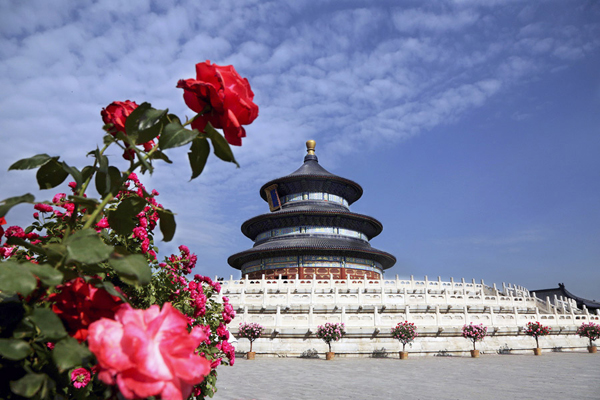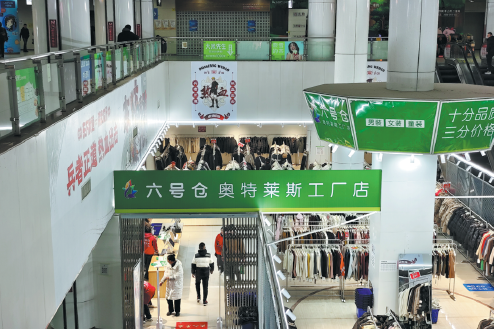Air purifier sales slump as blue skies dampen demand


It has been a tough year for Jia Wei as he saw his air-purifier business go up in smoke literally, as revenues plunged 70 percent to roughly 1.4 million yuan ($203,037) from 4 million yuan a few years ago, while new orders are fast drying up.
Contrast this with three years ago when Jia and his five-member team at YT-Wanon Technology Co Ltd, the firm he set up in 2013, were seeing a boom and were unable to cope with the growing demand for air purifiers in China.
"We are not the only ones to suffer and many of the smaller firms in the industry have already closed," said Jia.
His predicament literally sums up the current state of the air purifier industry in China, which is seeing a reversal of fortunes. This year, the total number of companies have dropped to about 530 by October, compared with the 816 two years ago. That means, roughly, on average, 35 percent of the companies have exited the sector.
According to statistics from Hexun, an information and news website, sales of air purifiers during the first six months of 2018 in China stood at 2.25 million units, a 28 percent drop from the same period a year ago. Avc-mr.com, another industry website, said air purifier sales fell by 29.5 percent in value terms to 5.8 billion yuan from the same period a year ago. It was also the largest decline in value terms among all electric home appliances sold in China during the same period.
According to industry experts, a lack of sufficient research and development budgets and the failure to innovate have led to the exit of many small-to-medium sized businesses and original equipment manufacturers who resold other company's products under their name. At the same time, the industry also witnessed a consolidation of sorts, with bigger players like Honeywell rejigging their product lines and focusing more on high-end products.
Liang Zhenpeng, an electric home appliance analyst with information website Toutiao, told Securities Daily recently that the vastly improving air quality took a major toll on air purifier sales in the country.
According to the Ministry of Ecology and Environment, during the first 10 months of this year, 81.5 percent of 338 cities at prefecture-level or above had controlled their Air Quality Index to 100 or under, a measure of good air quality according to the country's evaluation standards, up by 0.9 percentage point year-on-year.
Those cities also brought down their PM (particulate matter) 2.5 levels to 37 microgram per cubic meter, down 7.5 percent from the same period last year.
The situation, however, was quite different three years ago when air purifier sales soared to 3.52 million units, a 214.2 percent increase from 2011. The year of 2015 also saw surging number of consumers in smog-prone cities starting to realize the importance of products that can control the level of PM 2.5 breathable particles.
At the same time, the central government has also been launching a series of policies to combat pollution in the country. Efforts to cut coal consumption in northern cities from last winter onward have had a positive impact on the overall air quality and bluer skies.
"I check the air quality everyday with the number of apps that are available on my mobile phone. I used to change the filters of my air purifier every six months three years back. That has dropped now," said Huang Xinyi, a Beijing-based film producer.
Liang said the market for air purifiers, however, still has large potential, as smog remains a concern in some regions, and consumers have growing needs for equipment dealing with pollutants other than PM 2.5 particles, like formaldehyde and pollen. This is because most of the current purifiers are not geared for such purposes, while the high-end products which have such functions are seeing robust sales despite being expensive.
Data from avc-mr.com suggest that during the Singles Day sale this year, high-end air purifiers accounted for about 13.8 percent of the total sales, up 2.1 percent year-on-year. High-end products accounted for 39.4 percent of the total offline sales, up 5 percent from the same period last year.
Liang said that as consumer needs are diversifying, products that are unable to meet the diverse consumer demands are exiting the market, leaving the market gradually dominated by major manufacturers that have sufficient budgets to develop more tech-driven functions.
"Consumers are becoming more selective about the products they purchase, and tend to buy products that have more practical uses," said Emily Cheng, general manager of Honeywell Connected Living Solutions China.
Cheng told China Daily that the company remains bullish about market prospects and expects sales to grow further next year, as she sees the evolving market providing more growth opportunities for firms that focus on tech innovation.
"To follow the changing consumer needs, we are also enriching our products with specialized functions, like those that can remove formaldehyde, to increase our competitiveness," Cheng said.
The situation is totally different for Jia, though. He told China Daily that he is looking to team up with manufacturers that are able to produce filters that are more tech-driven, a key part for air purifiers, as a part of the company's larger efforts of business transformation.
"We hope that it will help generate more revenue. We have talked to several businesses in the southern cities and the future looks quite promising," he said.



































